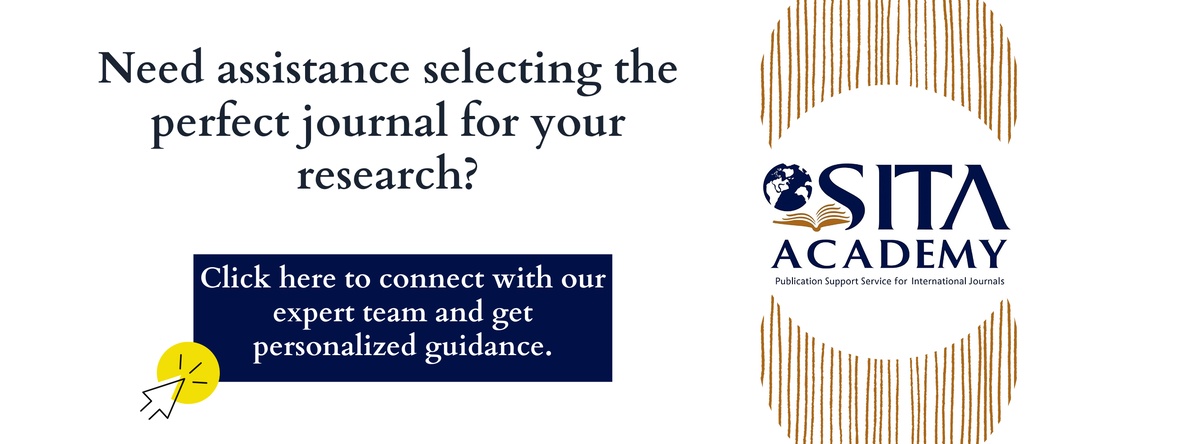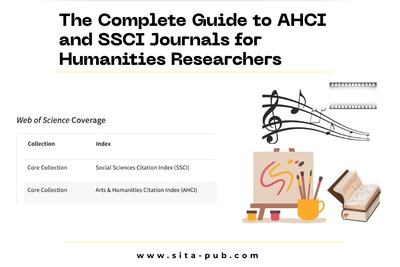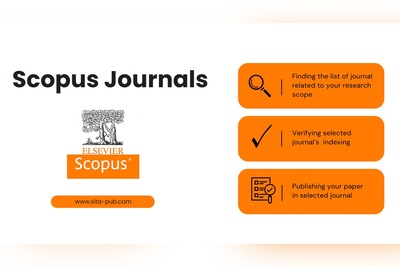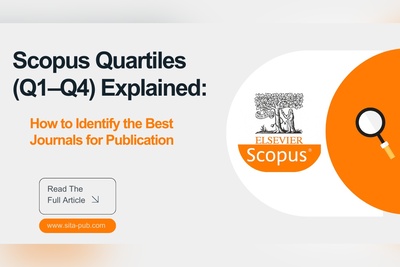Scopus Publication Requirements Across European Universities: A Guide for Researchers
Understand Scopus publication requirements for universities in Poland, Portugal, and other Central and Eastern European countries. Discover how to select the right journal and publish your research internationally.
- Why Publishing in Scopus is Important for European Universities
- European Universities That Require Publication in Scopus Journals
- Challenges in Publishing Research in Scopus Journals
- Choosing the Right Scopus Journal for Your Paper
- Turning Your Thesis into Research Papers
- Preparing for Submission
- How SITA Academy Supports Researchers
- Key Takeaways

For many European universities, research published in Scopus-indexed journals represents a standard of excellence for students and scholars. It is no longer enough to complete a thesis or a research project; the work must also be published in a credible, internationally recognized journal. While completing your research paper is a significant achievement, navigating the publishing process can be complex, time-consuming, and often challenging. This guide aims to provide clarity on why Scopus publications are required, which universities in Europe emphasize them, and how you can successfully select, prepare, and submit your research paper.
Why Publishing in Scopus is Important for European Universities

Scopus is one of the largest abstract and citation databases in the world. It is recognized for its high standards of research quality, transparency, and credibility. European universities consider Scopus-indexed journals as a benchmark for academic rigor. But why exactly is this so important?
Ensures Quality and Credibility: Publishing in Scopus-indexed journals ensures that your research has undergone thorough peer review, making your work reliable and credible. Universities rely on these journals to measure the quality of research submitted by students and faculty.
Contributes to University Rankings: Many European universities are ranked based on their research output and impact. Publications in Scopus journals contribute to citation metrics, which are a key factor in global and national rankings.
Eligibility for Grants and Scholarships: Many research grants and scholarship programs mandate publications in recognized indexed journals. Having your work published in Scopus-indexed journals serves as credible proof of research productivity.
Global Reach and Academic Networking: Publishing in Scopus journals allows your research to be visible to an international audience, fostering opportunities for collaborations, academic partnerships, and wider recognition in your field.
Graduation / Degree Requirements: Some European universities require students, especially at the master’s or PhD level, to have at least one publication in a Scopus-indexed journal to qualify for graduation.
Academic Promotion / Career Advancement: Faculty members and researchers may need publications in Scopus-indexed journals to meet criteria for promotions, tenure, or recognition within their institutions.
By understanding these benefits, researchers can see why European universities place such high importance on Scopus publications.
European Universities That Require Publication in Scopus Journals

Several universities across Europe have formal or informal requirements for students, researchers, and faculty to publish their work in Scopus journals. These requirements often apply to doctoral candidates, postdoctoral researchers, and academic staff.
Here are some examples:
Germany: Technical University of Munich, Heidelberg University, University of Freiburg, RWTH Aachen University
France: Sorbonne University, University of Paris-Saclay, University of Lyon, Grenoble Alpes University
Italy: University of Bologna, Sapienza University of Rome, University of Milan, University of Padua
Spain: University of Barcelona, Complutense University of Madrid, Autonomous University of Madrid, University of Valencia
Netherlands: University of Amsterdam, Delft University of Technology, Eindhoven University of Technology, Leiden University
United Kingdom: University of Oxford, Imperial College London, University of Cambridge, University College London
Sweden: Karolinska Institute, Lund University, Uppsala University
Switzerland: ETH Zurich, University of Zurich, EPFL (École Polytechnique Fédérale de Lausanne)
Belgium: KU Leuven, Ghent University, Université Catholique de Louvain
Denmark: University of Copenhagen, Technical University of Denmark, Aarhus University
Finland: University of Helsinki, Aalto University, University of Turku
Austria: University of Vienna, Graz University of Technology, Vienna University of Technology
Norway: University of Oslo, Norwegian University of Science and Technology (NTNU), University of Bergen
Portugal: University of Lisbon, University of Porto, NOVA University Lisbon
Poland: University of Warsaw, Jagiellonian University, Warsaw University of Technology
Ireland: Trinity College Dublin, University College Dublin, National University of Ireland Galway
Czech Republic: Charles University, Czech Technical University in Prague
Hungary: Eötvös Loránd University, Budapest University of Technology and Economics
Slovakia: Comenius University, Slovak University of Technology
Romania: University of Bucharest, Babeș-Bolyai University, Politehnica University of Bucharest
Bulgaria: Sofia University, Technical University of Sofia
Slovenia: University of Ljubljana, University of Maribor
Croatia: University of Zagreb, University of Rijeka
Lithuania: Vilnius University, Kaunas University of Technology
Universities implement these requirements to ensure research quality, strengthen their reputation, and foster an environment where research is internationally recognized. If you are a student or researcher planning to pursue higher studies or academic positions in Europe, understanding these requirements is crucial for career planning.
Challenges in Publishing Research in Scopus Journals
Publishing research is a rewarding experience, but it comes with its challenges. Many researchers struggle with:
Selecting the right journal for their research
Understanding submission guidelines and formatting requirements
Handling peer-review feedback and revisions
Ensuring ethical compliance and avoiding plagiarism
Meeting deadlines for thesis submission or funding requirements
Even highly skilled researchers can find the publication process daunting, which is why professional guidance can make a significant difference in success rates.
Choosing the Right Scopus Journal for Your Paper
Once your research paper is complete, selecting the appropriate journal is critical. Here are some key considerations:
Scope and Relevance: Make sure the journal’s focus aligns with your research topic. Publishing in a journal outside your field can reduce the visibility and impact of your work.
Indexing Status: Confirm that the journal is actively indexed in Scopus. You can verify this through the Scopus website or the Clarivate Master Journal List.
Impact Factor and Reputation: Check citation metrics, peer-review standards, and the overall reputation of the journal. Journals with a strong track record tend to attract more citations and recognition.
Acceptance Rates and Submission Guidelines: Review timelines, formatting requirements, and article types accepted by the journal. Some journals may have higher rejection rates, which should be considered when planning your submission.
Tip: If you have already finished writing your research paper, now is the perfect time to match it with the right journal to maximize your chances of successful publication.
Turning Your Thesis into Research Papers

If you do not yet have a ready research paper, there is still an opportunity to publish. Many universities encourage students to transform their thesis into multiple research papers. This process involves:
Extracting Key Findings: Focus on specific chapters, experiments, or results that can form the basis of a research article.
Language Adaptation: Your thesis may be in English or another language. It can be professionally translated and adapted for international journals.
Formatting and Structure: Adjust your content to meet the standards of the target journal, including abstract, methodology, results, and discussion sections.
Preparing for Submission

After selecting the right journal and preparing your paper, submission requires careful attention. Key considerations include:
Journal Guidelines: Follow submission instructions precisely, including formatting, citation style, and word count.
University Approval: Some universities require formal approval or registration of the chosen journal to ensure it meets institutional standards.
Ethical Compliance: Ensure originality, proper attribution, and compliance with research ethics.
Proofreading and Final Checks: Correct grammar, formatting, and referencing errors before submission.
Taking these steps seriously increases the likelihood of acceptance and reduces delays during the peer-review process.
How SITA Academy Supports Researchers
The publication process can be challenging, especially for researchers targeting Scopus-indexed journals. SITA Academy specializes in providing professional support to help researchers navigate this process successfully.
Our services include:
Journal Selection: Helping you identify Scopus journals that match your research topic and academic goals.
Paper Preparation: Guiding researchers in transforming theses or research work into publishable papers.
Submission Support: Assisting with formatting, journal requirements, and handling technical revisions.
Verification: Ensuring that the chosen journal is approved by your university and meets indexing criteria.
SITA Academy has a proven track record of helping researchers from multiple European countries publish successfully in Scopus journals. We have assisted students and faculty from Germany, France, Italy, Spain, the Netherlands, and the UK in navigating the complex publication landscape.
Contact Options
You can reach out to us via verified channels, online chat, or WhatsApp. Our team of publication professionals will guide you through every step of the process, from journal selection to final publication.
Key Takeaways
Publishing in Scopus journals is increasingly a requirement for European universities.
Selection of the right journal is critical for visibility, citations, and academic recognition.
Even if you do not have a ready paper, theses can be transformed into multiple research articles suitable for publication.
University approval and compliance with ethical and formatting standards are essential.
Professional guidance, such as that offered by SITA Academy, can simplify the publishing process and increase your chances of success.
By understanding these requirements and following a structured approach, researchers can ensure their work reaches the international academic community while meeting university standards.
Verified Contact Channels
If you have any questions, inquiries, or would like to learn more about our services, please don't hesitate to reach out to us. Our dedicated team is ready to assist you.














